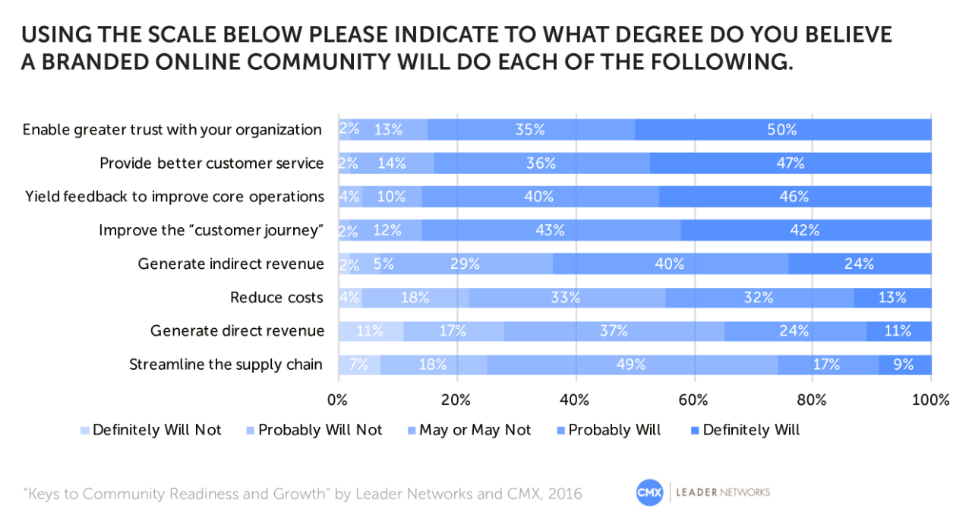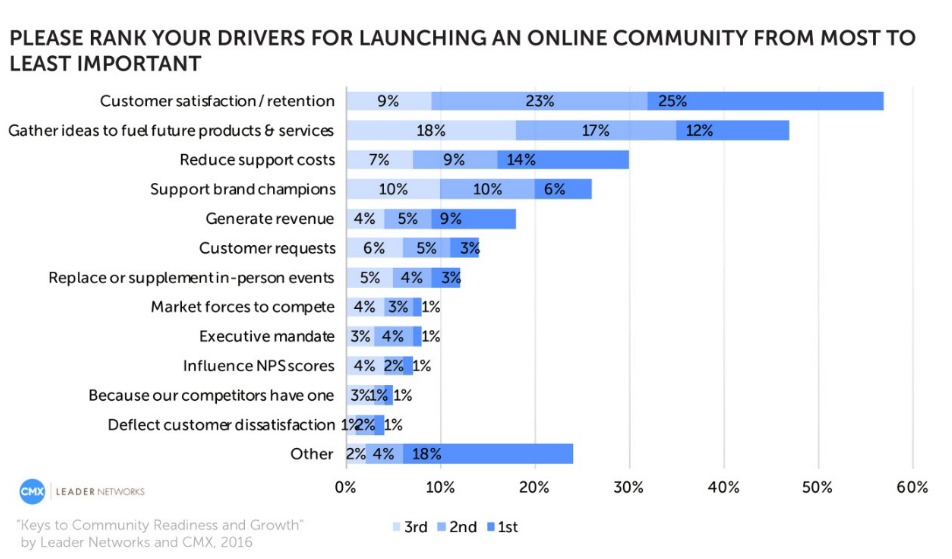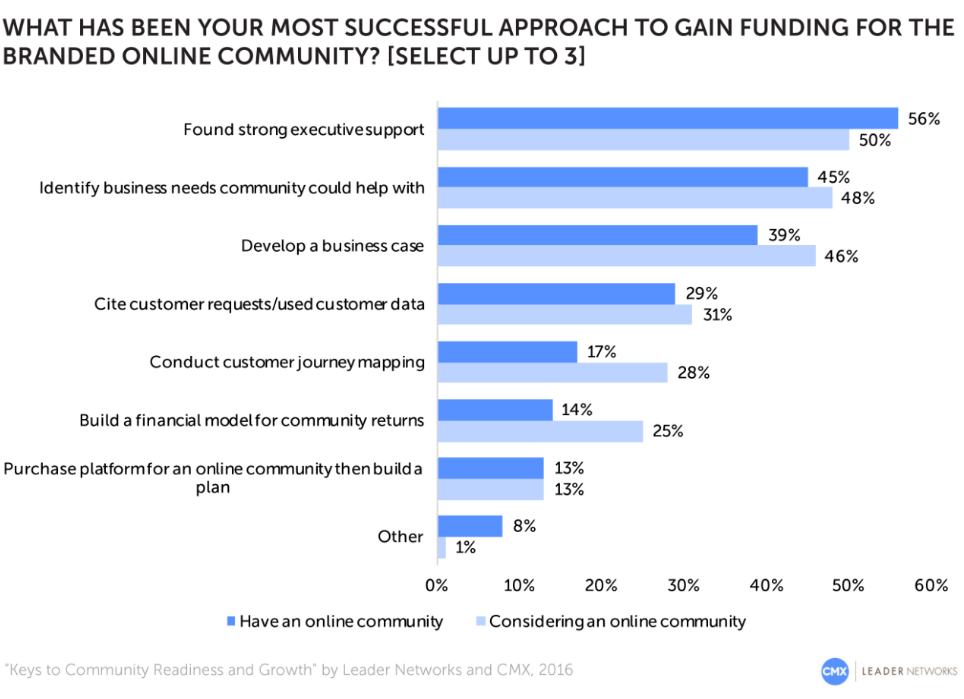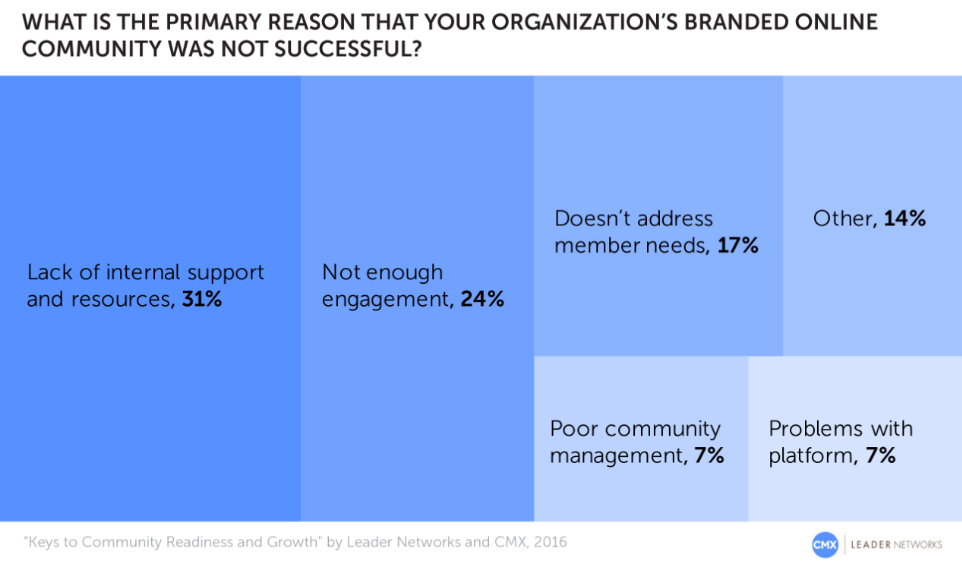Online communities have arrived! They are ubiquitous in the digital landscape providing opportunities for people to connect and learn from each other, to brainstorm, birth new ideas and solve problems. They are the places where companies can proactively learn of and avert potential issues, interact with customers, innovate and enhance their products and services. Online communities are the central pillar upon which the collaborative economy is being built.
While we know this to be true, we all craved data to better understand the landscape. Our research mission was to clear the fog around how brands define community readiness and to pin down the success index for online communities with data and practitioner insights. We sought to identify the business drivers for the most successful communities, what compels organizations to build them, and to identify the key factors that help the most successful ones pull away from the pack. Which is why we partnered with CMX Media to conduct the Keys to Community Readiness and Growth: How Brands Prepare for Online Community study.
We’re thrilled that this study has allowed up to identify the criteria that define and predict the most commonly found characteristics of thriving communities. What we knew intuitively and anecdotally about community success has now been codified. And with it is evidence that communities are part of the business strategy and integral to the customer journey.
Of the more than 400 marketing and community practitioners who participated in the study, two-thirds are currently running a branded online community, and one-third are considering one but haven’t launched one to date. Study participants came from both business to business and business to consumer organizations and ranged in size from under 100 to over 50,000 full-time employees.
To find out what the online community success equation is be sure to download the full report here. Here are some research highlights:
1. Brands believe community will impact core operations.
86% of survey takers believe that having a branded online community will positively impact core operations, while 85% believe it will improve the customer journey and increase trust.
2. Brands want community to fuel customer satisfaction, retention, and innovation.
Brands launching online communities are increasingly focused on supporting the customer journey. The goal of using community as a cost-reduction mechanism has been replaced by a desire to focus on customer satisfaction, retention, and ideas.
3. Communities need executive sponsors and a business case to thrive.
Executive sponsorship and identifying key business drivers are critical success factors in launching a successful online community. When launching a branded online community, 56% found it important to determine a business need, 45% relied on executive support, and 39% built a business case.
4. Lack of internal support is the most cited reason for community failure.
Maintaining community engagement and growth is an ongoing challenge for most, yet they are often the leading indicators of success for very successful communities. Lack of internal support and low member engagement are the primary reasons that communities fail long-term.
5. The overwhelming majority of brands with a community have at least one dedicated community professional on their team.
The overwhelming majority (92%) of brands that have a community report utilizing at least one dedicated community manager while organizations considering launching an online community often underestimate staffing and technology requirements.
Bonus: We are moving toward an agreed-upon definition for “community” in business.
68% of respondents defined community by saying that communities “Have members who develop relationships with each other on a dedicated platform” and 67% said that they “Have members who interact on a branded platform with the brand” and a “Common set of people with mutual interest who convene online”. Nearly half agree that a branded community must “Have a central gathering place.”
Read the entire report Here.
Thank you to all who participated in the study and to our sponsors – Salesforce, Jive and Vanilla Forums. We welcome your questions and comments and will be sharing more detailed analysis about the study in the weeks to come.







